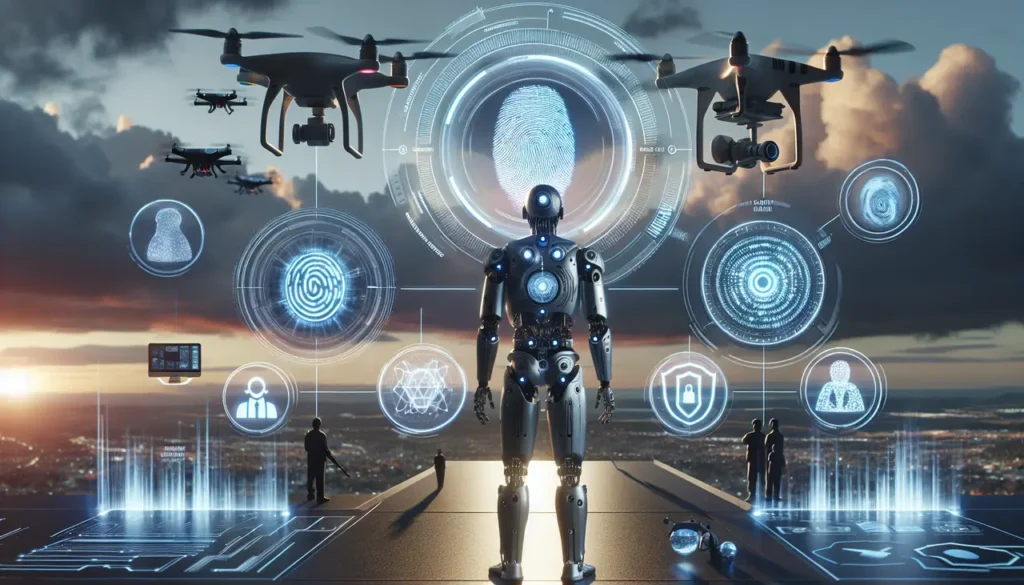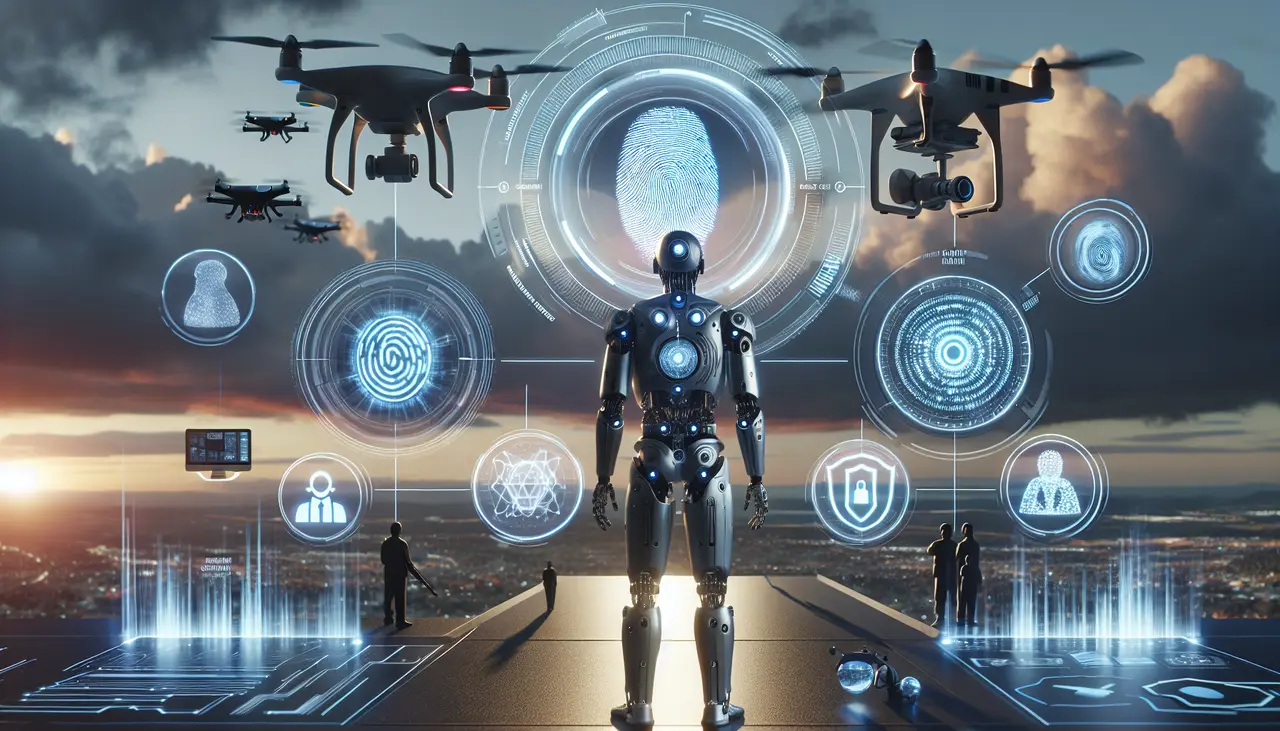Introduction to the Evolving Landscape of Security Technology
As we step into 2024, the landscape of security technology is not just changing; it’s evolving at breakneck speed. Gone are the days when simple antivirus software and a sturdy lock were enough to keep threats at bay. Today, the arena of security has expanded far beyond physical locks and into the realms of digital protection, biometric authentication, and even artificial intelligence-driven systems. Security technology now aims to stay ten steps ahead of potential threats, adapting as quickly as the tactics of those who wish to breach it. From protecting personal data against cyber-attacks to ensuring physical safety in public spaces, this year promises advancements that could once be considered the stuff of science fiction. Stay tuned as we dive deeper into these trends, exploring how they’re set to reshape the safety nets of our digital and physical worlds.
The Rising Importance of AI and Machine Learning in Security
AI and machine learning are not just buzzwords; they’re revolutionizing how we approach security. Gone are the days when security systems purely relied on human monitoring and basic technology. Today, AI and machine learning are at the forefront, playing a crucial role in predicting and preventing security threats before they happen. These technologies can analyze vast amounts of data at an unprecedented speed, identifying patterns that would take humans ages to recognize. From combating cyber threats to enhancing physical security measures, AI-driven solutions are becoming indispensable. They learn from past incidents, making security systems smarter and more efficient with each challenge. In essence, AI and machine learning are not just enhancing security; they’re reshaping it, promising a future where threats can be anticipated and neutralized with precision and speed.
Biometric Authentication: Beyond Fingerprints and Face ID
Biometric authentication isn’t just about fingerprints and Face ID anymore. The world is moving towards more futuristic options. Now, we’re looking at iris scans, voice recognition, and even heartbeat patterns to secure our devices and personal information. Imagine walking into your office, and instead of typing a password, your voice becomes the key. Or think about your smartwatch, not just tracking your steps, but also confirming it’s really you by the way your heart beats. These methods aren’t just cool, they’re also harder for bad guys to copy. This means your information is safer than ever. So, the next time you unlock your phone or log into your email, remember, the future is already here, and it’s making sure you’re really you in ways you might have never imagined.
Blockchain: A New Frontier for Cybersecurity
Blockchain isn’t just for cryptocurrency; it’s revolutionizing cybersecurity. Think of blockchain as a digital ledger that’s nearly impossible to hack. Each block of data is connected to the one before it and the one after it, creating a chain. Because of this, tampering with one block would require altering every block after it, which is a herculean task even for the most skilled hackers. This makes blockchain a powerful tool in fighting fraud and securing online transactions. Companies are starting to use blockchain to create more secure systems. From healthcare records to secure voting systems, blockchain’s applications are vast and varied. Its ability to offer transparency and security simultaneously is what sets it apart in the cybersecurity domain. So, when we talk about the future of security technology, blockchain’s role is undeniable; it’s not just changing the game, it’s redefining the entire playing field.
The Growth of IoT and its Implications for Security Technology
The Internet of Things (IoT) is taking over, linking everything from your fridge to your car to the internet. This isn’t just cool; it’s transforming how we think about security. As more gadgets get smart, the more opportunities hackers have to sneak into our lives. It’s a double-edged sword. On one side, IoT can make homes and businesses safer. Think about cameras that alert you to intruders or smoke detectors that send you a message if there’s a fire. But, there’s a flip side. Every connected device is a potential door for cybercriminals.
So, what does this mean for security tech in 2024? We’re looking at smarter security solutions. Security systems need to be as smart or smarter than the things they’re protecting. Expect to see more advanced encryption methods, smarter antivirus software, and AI-driven monitoring tools that can predict and stop hacks before they happen. Also, manufacturers will have to step up, making sure devices are secure from the get-go. In short, the growth of IoT is pushing the security tech industry to innovate like crazy. It’s an arms race, and it’s happening right now.
Cloud Security: Adapting to the Digital Transformation
As we navigate deeper into the digital age, cloud security stands as a vital frontier in the landscape of security technology. Businesses and individuals are moving their operations online, pushing data storage and management into the cloud. This shift demands beefed-up security measures to protect sensitive information from cyber threats. Gone are the days when a simple firewall and antivirus software sufficed. Today, we’re talking about deploying advanced encryption, multi-factor authentication, and real-time threat detection mechanisms. Companies are adopting these sophisticated strategies not just to shield themselves but to stay compliant with evolving global data protection regulations. And with cybercriminals getting more cunning by the day, investing in cloud security is no longer optional—it’s a must. Expect to see more AI and machine learning tools integrated into cloud security systems, offering smarter, faster ways to thwart attacks before they happen. The goal? To stay one step ahead in the digital transformation race, ensuring our online fortresses remain impenetrable.
The Role of Quantum Computing in Future Security Solutions
Quantum computing is set to change the game in security technology. This isn’t just another tech buzzword; it’s a real leap forward. Imagine a computer that can process information millions of times faster than the best machines we have today. This is what quantum computing is all about. It uses the principles of quantum mechanics to process information in a fundamentally different and more efficient way compared to classical computers.
Here’s the kicker for security: quantum computers can, in theory, crack codes that would take traditional computers centuries to decipher. This means that much of our current encryption, the stuff keeping our online transactions and communications safe, could become vulnerable. But it’s not all doom and gloom. The same power that could potentially break our current security systems is also paving the way for a new type of encryption known as quantum encryption or quantum key distribution (QKD). QKD uses the principles of quantum mechanics to secure a communication channel in such a way that it becomes virtually impossible for someone to intercept the communication without being detected.
In 2024, we’re seeing more investment and research in quantum computing technologies with a security focus. Companies and governments are pouring money into developing quantum-resistant encryption methods to safeguard against the potential threat posed by quantum computers. This shift is crucial for maintaining the integrity of sensitive information ranging from national security details to your personal bank account information.
So, while quantum computing presents new challenges in the field of cybersecurity, it also offers promising solutions. The race is on to harness this technology for building a future where our digital lives are even more secure than they are today. Keep an eye on this space; quantum computing is where the future of security technology is heading, and it’s happening faster than many people realize.
Cybersecurity Mesh: A Trend to Watch in 2024
Cybersecurity Mesh is quickly becoming a big deal. It’s like a security net that wraps around all of your digital stuff, even if it’s spread out all over the place. Instead of keeping each thing safe on its own, cybersecurity mesh links them together under one strong security system. This way, if something sketchy tries to get into your stuff, the mesh helps block it out, no matter where it tries to sneak in from. This method is smart because it means you can work or play on the internet feeling a lot more secure. Experts think that by 2024, lots of companies will be using cybersecurity mesh to protect their data better. It’s all about keeping things safe in a world where everything is connected. So, keep an eye on cybersecurity mesh; it’s a game-changer for keeping hackers out and your data safe.
The Impact of 5G on Security Technology
5G is changing the game for security technology, big time. Imagine downloading a full HD movie in seconds. That’s 5G speed for you. But it’s not just about fast internet. For security tech, it means cameras, sensors, and alarms can send more data, faster, and from more places. This means security systems can be more responsive. Instant alerts, real-time video feeds, and quicker remote action, from locking down an area to calling for help. But it’s not all sunshine. With more devices connected, the risk of cyber attacks goes up. Security tech needs to keep pace, using advanced encryption and smarter cybersecurity measures to keep hackers at bay. In short, 5G is making security systems quicker, more reliable, and yes, a bit more vulnerable. Time for security tech to level up!
Conclusion: Preparing for the Future of Security Technology
As we’ve journeyed, it’s clear that the landscape of security technology is always evolving. From AI-driven security systems to biometric advancements, the future is both exciting and demanding. What this boils down to is simple: stay informed and adaptable. The advancements mentioned – cyber defense mechanisms, smarter AI, and more robust biometric systems – are not just buzzwords; they are becoming necessities. As technology advances, so do the techniques of those wishing to exploit it. Therefore, embracing these changes isn’t just advisable; it’s essential for safeguarding our future. Keep an eye on these trends, and most importantly, be ready to adapt. The security of tomorrow depends on the steps we take today.


